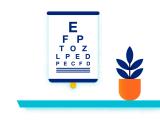Integrating Care Teams in a Virtual World

This activity will examine how the multiple aspects of digital health can be best utilized by health care team members to ensure continuity of the patient’s health care journey, meet care plan goals, improve patient outcomes and optimize team communication practices. The ability of virtual health care practices to enable team members to fulfill their roles in clinical decision-making and care plan implementation will be discussed. Important legal, regulatory and reimbursement considerations that pertain to digital practice integration within the health care team will be highlighted.
Category
- Digital health
Format
- On-demand Webcasts
Credits
- 1.00 ACPE - Pharmacists
- 1.00 ACPE - Pharmacy Technicians
- 1.00 AMA - Physicians
- 1.00 ANCC - Nurses
- 1.00 APA - Psychologists
- 1.00 Attendance - General Attendance
- 1.00 ASWB - Social Workers
Cost $0.00
Monkeypox Explained: Symptoms, Transmissibility and Prevention

This activity will provide participants with the latest science on monkeypox, describing the spectrum of associated symptoms and signs, virulence, and common routes of transmission. Discussion will also focus on the factors driving this outbreak, approaches to prevention and management, and an overview of the impact of this disease globally and in comparison with the current COVID-19 public health emergency.
Category
- Infectious diseases
Format
- On-demand Webcasts
Credits
- 0.50 ACPE - Pharmacists
- 0.50 ACPE - Pharmacy Technicians
- 0.50 AMA - Physicians
- 0.50 ANCC - Nurses
- 0.50 APA - Psychologists
- 0.50 Attendance - General Attendance
- 0.50 ASWB - Social Workers
Cost $0.00
Diabesity: A Call for Urgent Action

This activity will highlight new updates in our understanding of how diabesity develops and describe the negative physiologic effects of this disease on multiple body systems, notably the cardiovascular and renal systems. Optimal treatments for diabesity will be identified, along with an overview of the health burden of diabesity related to long-term complications and reduced function, quality of life and life expectancy.
Category
- Disease management
- Wellness
Format
- On-demand Webcasts
Credits
- 1.00 ACPE - Pharmacists
- 1.00 ACPE - Pharmacy Technicians
- 1.00 AMA - Physicians
- 1.00 ANCC - Nurses
- 1.00 APA - Psychologists
- 1.00 Attendance - General Attendance
- 1.00 CDR - Dietitians
- 1.00 ASWB - Social Workers
Cost $0.00
Managing Urinary Incontinence

This activity will highlight the prevalence of UI; provide effective communication and shared decision-making techniques; and discuss how to assess, treat and provide follow-up care for UI including available resources to support care and management.
Category
- Disease management
- Older adults
- Wellness
Format
- On-demand Webcasts
Credits
- 0.75 AMA - Physicians
- 0.75 ANCC - Nurses
- 0.75 Attendance - General Attendance
Cost $0.00
Unlocking Patient-reported Outcomes to Advance Quality, Experience and Decision Making

This activity will explore the value of PRO measures in the health system and discuss methods of optimally integrating these measures. It will discuss strategies that the health care team and health system can use to interpret and apply PRO data to add value to current care delivery practices.
Category
- Disease management
Format
- On-demand Webcasts
Credits
- 1.00 AMA - Physicians
- 1.00 ANCC - Nurses
- 1.00 Attendance - General Attendance
Cost $0.00
Diagnosis and Management of Ocular Symptoms Related to Concussion and Acquired Brain Injury

This activity will focus on the evaluation and management of oculomotor symptoms associated with acquired brain injuries (ABI) due to concussion, stroke and other causes. It will discuss the battery of tests that can establish the presence of oculomotor dysfunction and will cover available treatment options, including glasses, prism glasses, therapeutic eye drops and vision therapy. The importance of a team management approach through collaboration and referrals will be stressed. After this activity, eye doctors should be comfortable evaluating patients with a history of concussion or ABI.
Category
- Disease management
- Vision
Format
- On-demand Webcasts
Credits
- 1.00 Attendance - General Attendance
- 1.00 COPE - Optometrists
Cost $0.00
Understanding How Eating Disorders Impact Those in the Child Welfare System

This activity will discuss the connection between childhood trauma and eating disorders and how to better assess the risk of young people within the child welfare system developing eating disorders. It also will provide HCPs with guidance regarding improved recognition of the underlying conditions and experiences that must be addressed to successfully treat individuals struggling with disordered eating.
Category
- Pediatrics
Format
- On-demand Webcasts
Credits
- 1.50 ACPE - Pharmacists
- 1.50 ACPE - Pharmacy Technicians
- 1.50 AMA - Physicians
- 1.50 ANCC - Nurses
- 1.50 APA - Psychologists
- 1.50 Attendance - General Attendance
- 1.50 ASWB - Social Workers
Cost $0.00
Medically Necessary Contact Lenses

This activity will provide a current update to participants’ comprehensive knowledge and understanding of various contact lens options for patients with common diagnoses requiring medically necessary contact lenses. This session will delve into the tool chest of contact lens solutions, including standard rigid gas permeable (RGP) lens designs, reverse geometry RGPs, hybrids and scleral lenses. Participants will explore the anatomy of contact lenses, specific designs and applications for conditions such as keratoconus and irregular corneas. The activity will also cover the advantages and considerations associated with each lens type, patient experiences and advancements in scleral lens designs.
Category
- Disease management
- Vision
Format
- On-demand Webcasts
Credits
- 1.00 AMA - Physicians
- 1.00 Attendance - General Attendance
- 1.00 COPE - Optometrists
Cost $0.00
Serious Illness Conversation

Activity descriptionConversations that provide patients who have serious and life-threatening illnesses with the opportunity to make informed choices reflecting their goals, values and care preferences are a critical part of their care.
Category
- Behavioral health
- Disease management
- Palliative care and hospice
Format
- Online Education (E-modules)
Credits
- 2.00 AMA - Physicians
- 2.00 ANCC - Nurses
- 2.00 Attendance - General Attendance
Cost $0.00
CRISPR-Based Therapies for Genetic Blood Disorders

Join this session to explore updates in genetic therapy for two prevalent hemaglobinopathies: sickle cell disease and beta thalassemia.
Category
- Disease management
Format
- On-demand Webcasts
Credits
- 0.75 ACPE - Pharmacists
- 0.75 ACPE - Pharmacy Technicians
- 0.75 ADA - CERP (Dentists/Allied Dental Staff)
- 0.75 AMA - Physicians
- 0.75 ANCC - Nurses
- 0.75 APA - Psychologists
- 0.75 Attendance - General Attendance
- 0.75 CDR - Dietitians
- 0.75 ASWB - Social Workers
Cost $0.00

 Facebook
Facebook Twitter
Twitter LinkedIn
LinkedIn Forward
Forward